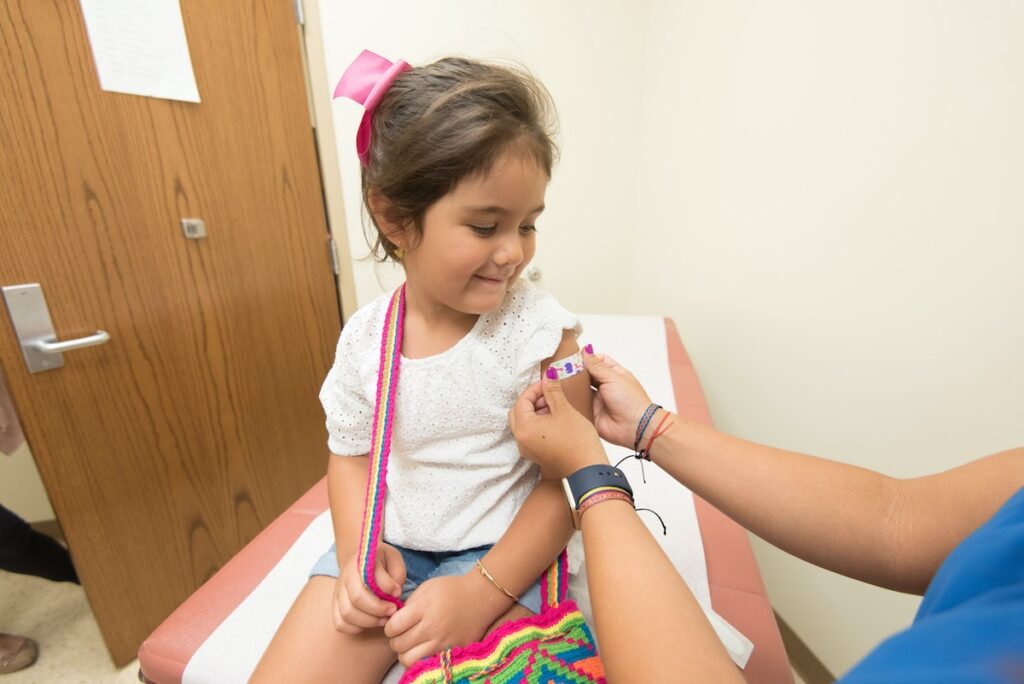As your child becomes a teen, you will find that sleep is just as important as it was when they were younger.
When your pre-teen or teens don’t get enough sleep, you’ve probably noticed they get cranky or have trouble paying attention. But over time, lack of sleep can also lead to high blood pressure, weight problems, headaches, and depression. It can also have significant negative impacts on school performance.
How Much Sleep Do Teens Need?
Teens still need a substantial amount of sleep. The American Academy of Pediatrics recommends 8-10 hours each night (though naps count towards that amount). Starting around puberty, you’ll notice your pre-teen’s natural bedtime will begin to shift up to two hours later as their sleep-cycle adjusts.
Be a Sleep Role Model
Your pre-teen or teen is learning to establish healthy habits for themselves that they will carry with them into adulthood. Setting the example and making sleep a priority for yourself and your family teaches your teen that sleep is an important part of a healthy lifestyle.
That means continuing to teach them to head to bed at the same time daily as much as possible. Staying up late for all nighters or sleeping in can disrupt their body’s natural sleep cycle. With school events, practices, and social gatherings, it can be challenging to maintain a routine. However, try to keep their bedtime as regular as possible, especially during the week when they have to get up for school early in the morning and leave later nights for the weekend.
While sleeping in may not be feasible on school days, it can be beneficial on weekends to allow some catch-up on any “sleep debt.”
Tech-Free Bedroom at Night
Teens who sleep with mobile devices or spend a lot of time on social media are at an increased risk for sleep problems. Devices emit blue light, which makes the brain think it’s daytime instead of night. That can lower the body’s nighttime melatonin levels, making your teen feel more alert when melatonin is usually increasing to make their body feel sleepy.
Technology can be hard to put down, and it also can be disruptive to a teen’s sleep with notifications dinging through the night. To avoid that temptation and distraction, you can make it a family rule to keep devices out of their bedrooms at night. Try creating a nighttime charging station in another part of the house. Also, you can make it a family rule to have not have technology for an hour before bedtime.
Create a Comfy Sleep Environment
Teach your teen to make their bedroom a comfortable place that promotes sleep at night. Make sure their bed and bedding is comfortable. Teach them to keep their room cool and dark, and even provide white noise or other soothing sounds to help them sleep.
Choosing a Sleep Routine
While parents lead the sleep routine when their children are younger, you can guide your teen to create their own sleep routine. Some ideas they may want to implement that help promote a good nights sleep include:
- Eating a light healthy snack or carbs and protein within two hours of bedtime
- Taking a warm bath or shower before bedtime
- Reading something soothing or relaxing before bed
- Meditating or practicing mindfulness to calm their brain
- Journaling to write about their day or to plan out the next day to unburden stresses for the night
- Also remember that regular exercise is helpful for helping to regulate the body’s sleep rhythms
When to Get Help
If your pre-teen or teen is struggling with falling asleep or staying asleep, or is struggling to stay awake during the day, talk to your provider at Pediatrics West. We can offer advice on things to try as well as assess your child’s health to see if there might be an underlying cause for their sleep problem. Call us at 720-284-3700.


